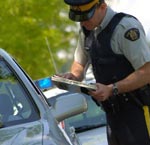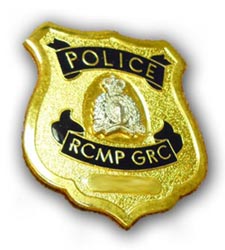Are you really talking to the police?
There have been incidents where people impersonating the police tried to scam individuals and businesses. In some cases, criminals successfully used this ploy to commit robbery, child abduction, sexual assault, and kidnapping.
If you are suspicious about a person presenting themselves as a police officer, call your local police immediately. Police dispatchers will be able to confirm the identity of any police officers working in the area.
Here are some examples:
Phone scam
A male, who identified himself as a RCMP officer, telephoned the parents of a local resident and told them their son was in trouble with the police in Lebanon. The caller alleged their son (used the son's actual name) was going to be charged with two counts of Possession for the Purpose of Trafficking. The caller then asked to have $9000 wired to Lebanon through Western Union. The money would be used to process the criminal charges and have the son released from police custody.
In another case, an individual received a call advising them that their son had been a victim of identity theft. The "officer" was able to provide the date of birth and cell phone number of the supposed victim. The police impersonator then proceeded to ask for more information on the son. The recipient of the phone call was skeptical about who she was speaking with and contacted police when the phone numbers provided by the "officer" were not what they should have been.
Donation scam
A resident received an unsolicited brochure arriving by mail from a police association. The brochure asked for donations to the Cops for Kids Safety Program.
Traffic stop

A police impersonator with flashing lights pulled over a woman. They asked her to step out of her car and hand over her identification.
Businesses
A man entered a business, introduced himself as a police officer with a badge, and asked to see the cash that the previous customer had paid with. He told the clerk "there was an investigation". Once the cash was handed over, the man gave the clerk a fake police file number and said he would return.
In another case, a man dressed as an RCMP officer entered a gas station and attempted to remove an ATM machine.
At home
Persons announcing themselves as police officers asked for entrance into a home. In some cases, this illegal entry has resulted in theft, assaults and kidnapping.
Tips to avoid becoming a victim:
- Call police if you believe it is a scam.
- If someone identifies themselves to you as a police officer, they will usually state their name and rank, as well as which detachment or police force they are working out of.
- Call your local detachment and ask dispatchers to verify the contact.
- RCMP officers are issued identification cards nation-wide and are required to carry these cards as well as their badge. See below images for examples of RCMP identification.
Here is a picture of an RCMP badge.
- Date modified:
